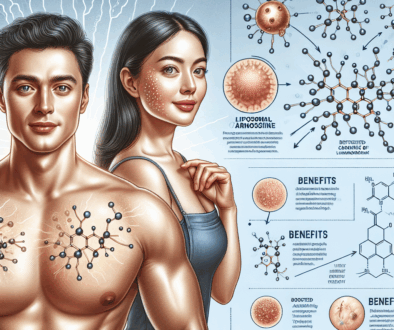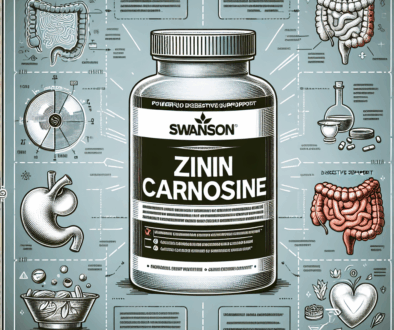80 mg Isotretinoin: High-Dose Treatment Explained
-
Table of Contents
- 80 mg Isotretinoin: High-Dose Treatment Explained
- Understanding Isotretinoin and Its Mechanism
- When is 80 mg of Isotretinoin Prescribed?
- Benefits of High-Dose Isotretinoin
- Potential Risks and Side Effects
- Managing Side Effects and Monitoring Treatment
- Conclusion: Weighing the Pros and Cons
- Explore ETprotein’s High-Quality Protein Products
80 mg Isotretinoin: High-Dose Treatment Explained
Isotretinoin, a potent derivative of vitamin A, has long been a cornerstone in the treatment of severe acne, particularly when other therapies fail. The use of high doses, such as 80 mg, is a topic of both significant interest and debate within the dermatological community. This article delves into the nuances of high-dose isotretinoin treatment, exploring its efficacy, potential side effects, and the circumstances under which it is prescribed.
Understanding Isotretinoin and Its Mechanism
Isotretinoin works by targeting the four main factors responsible for acne: oil production, skin cell turnover, bacteria, and inflammation. By dramatically reducing the size and output of the sebaceous glands, isotretinoin decreases oil production, hindering the acne-causing bacteria that thrive in oily environments. Additionally, it normalizes skin cell turnover, which helps prevent clogged pores and reduces inflammation.
When is 80 mg of Isotretinoin Prescribed?
The decision to prescribe 80 mg of isotretinoin is not taken lightly. Dermatologists consider several factors:
- Severity of Acne: Typically, such high doses are reserved for severe nodular acne that has not responded to other treatments.
- Patient’s Weight: Dosage can be dependent on the patient’s body weight; hence, higher doses may be suitable for heavier individuals.
- Treatment History: Extensive treatment history with inadequate responses to conventional therapies might warrant a higher dose.
Benefits of High-Dose Isotretinoin
While the use of high-dose isotretinoin is often debated, several benefits are associated with its use:
- Increased Efficacy: Higher doses may lead to better overall results in terms of acne clearance.
- Reduced Treatment Duration: Some studies suggest that higher doses can shorten the duration of treatment needed to achieve clear skin.
- Long-term Remission: There is evidence to suggest that higher initial doses might be associated with a lower likelihood of relapse.
Potential Risks and Side Effects
Despite its benefits, the use of 80 mg isotretinoin is not without risks. The side effects can be more pronounced at higher doses:
- Teratogenicity: Isotretinoin can cause severe birth defects if taken during pregnancy.
- Mental Health Risks: There have been reports of depression, anxiety, and other psychiatric symptoms.
- Physical Side Effects: These can include dry skin, lips, and eyes, joint and muscle pains, and elevated liver enzymes and blood lipid levels.
Managing Side Effects and Monitoring Treatment
Effective management of side effects and careful monitoring are crucial components of high-dose isotretinoin therapy:
- Regular Follow-ups: Frequent appointments with a healthcare provider to monitor the patient’s response to the medication and adjust the dose if necessary.
- Laboratory Tests: Regular blood tests to monitor liver function and lipid levels throughout the course of treatment.
- Supportive Care: Use of moisturizers, lip balms, and eye drops to manage dryness, as well as discussions about mental health support if needed.
Conclusion: Weighing the Pros and Cons
The decision to use 80 mg of isotretinoin involves a careful consideration of the potential benefits and risks. While the higher dose may offer enhanced efficacy and shorter treatment times, it also carries a greater risk of significant side effects. It is essential for patients and healthcare providers to work closely together to monitor health and adjust treatment as needed.
Explore ETprotein’s High-Quality Protein Products
For those interested in maintaining optimal health, including skin health, ETprotein offers a range of superior protein products. Their extensive lineup, including organic rice protein and pea protein, supports various health and wellness goals. These products are ideal for individuals looking to enhance their dietary intake with high-quality, allergen-free, and non-GMO protein options.
ETprotein is Isotretinoin Factory Manufacturer and Supplier in China, Check further information by visiting the Isotretinoin Product Page
Request Quotation and Samples of Isotretinoin from ETprotein
About ETprotein
ETprotein, a reputable protein and elite nutrition ingredients Isotretinoin Chinese factory manufacturer and supplier, is renowned for producing, stocking, exporting, and delivering the highest quality organic bulk vegan proteins and elite nutritional ingredients Isotretinoin. They include Organic rice protein, clear rice protein, pea protein, clear pea protein, watermelon seed protein, pumpkin seed protein, sunflower seed protein, mung bean protein, peanut protein. Their offerings, characterized by a neutral taste, non-GMO, allergen-free attributes, cater to a diverse range of industries. They serve nutraceutical, pharmaceutical, cosmeceutical, veterinary, as well as food and beverage finished product distributors, traders, and manufacturers across Europe, USA, Canada, Australia, Thailand, Japan, Korea, Brazil, and Chile, among others.
ETprotein specialization includes exporting and delivering tailor-made protein powder and finished nutritional supplements. Their extensive product range covers sectors like Food and Beverage, Sports Nutrition, Weight Management, Dietary Supplements, Health and Wellness Products, and Infant Formula, ensuring comprehensive solutions to meet all your protein needs.
As a trusted company by leading global food and beverage brands and Fortune 500 companies, ETprotein reinforces China’s reputation in the global arena. For more information or to sample their products, please contact them and email sales(at)ETprotein.com today.












